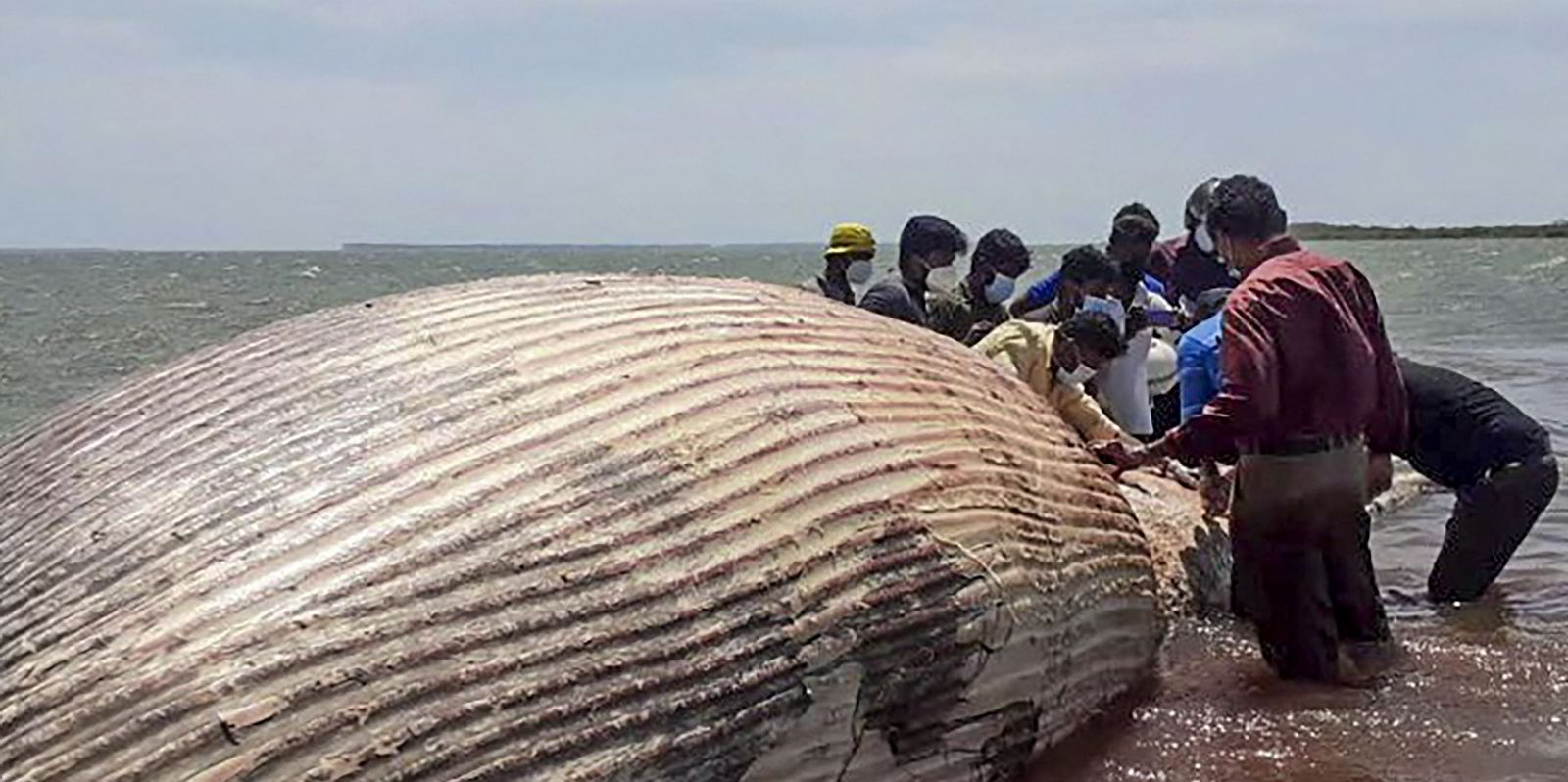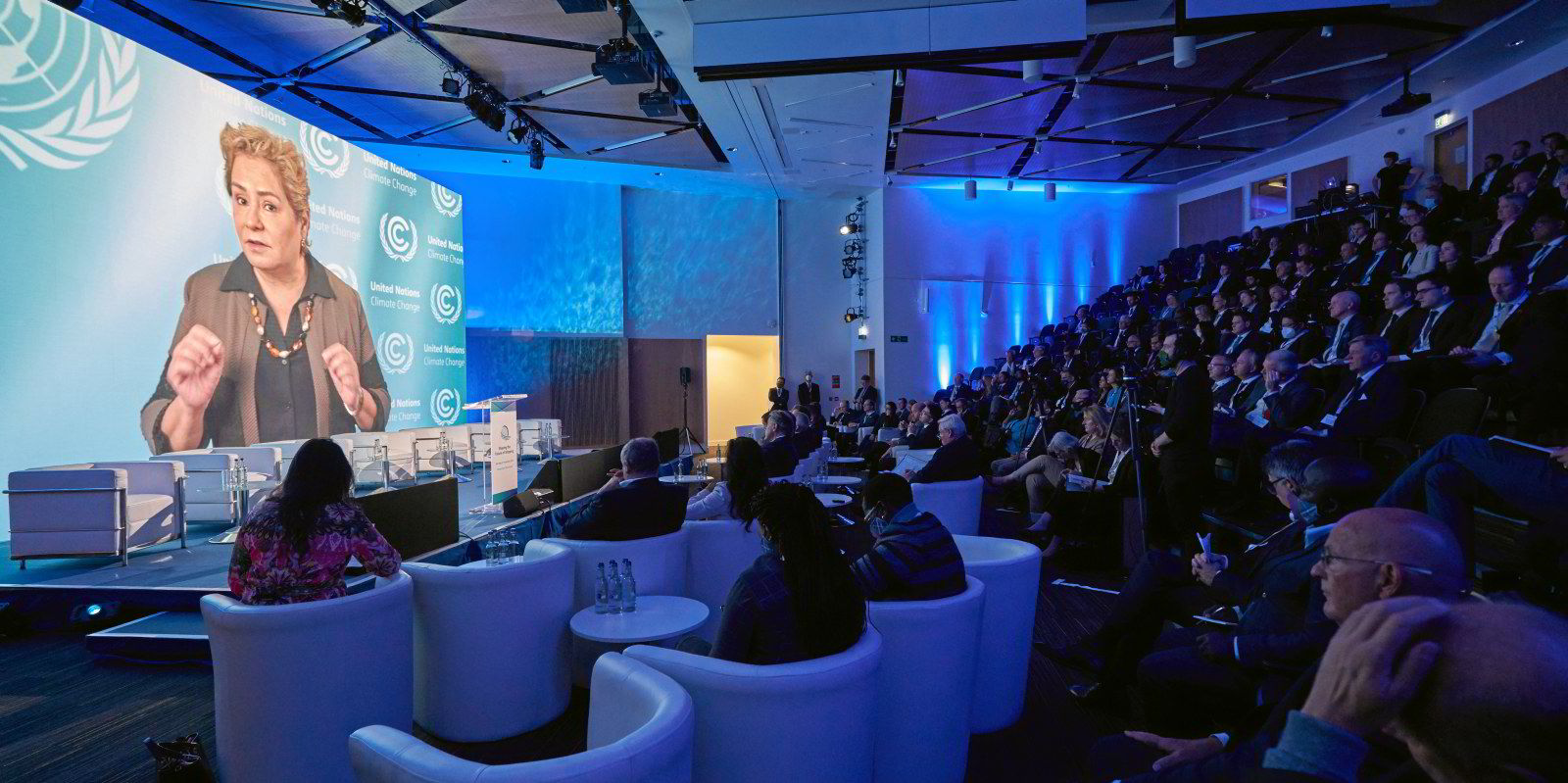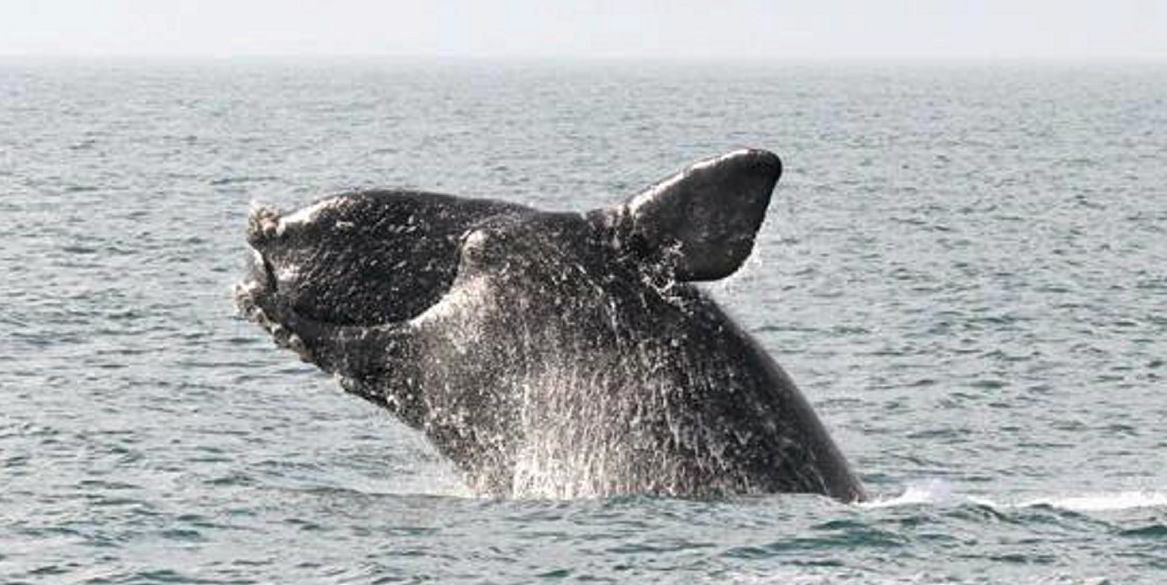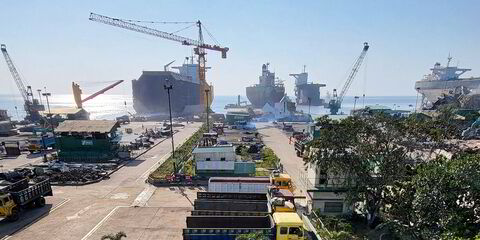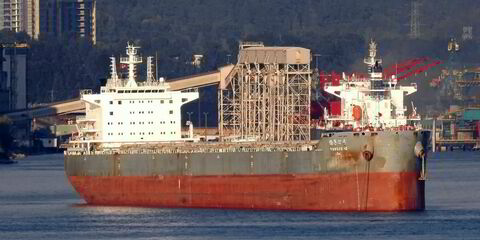There is a unique feature about the blue whales that are found off the coast of Sri Lanka: unlike other large whales, they do not migrate.
But that means the endangered cetaceans spend their lives in a busy corridor for shipping traffic, which is a major cause of whale deaths.
While shipping companies and environmental groups are in agreement that the solution is to move a traffic separation scheme in Sri Lankan waters, stakeholders involved in the effort said the island nation's government has yet to take steps at the International Maritime Organization to make the move.
But proponents of the change are still trying.
Collisions with ships are one of the top threats to endangered blue whales, with fishing industry entanglements another key problem.
Shifting the trade lane just 29 km to the south could reduce the risk to whales by 90%, said Roberto Lombardi, conservation campaign developer and sustainable standards promoter at the World Sustainability Organization (WSO).
Friend of the Sea, a programme of the green group, has worked with the liner industry body World Shipping Council to push for the change, including a 2017 letter with several other shipping industry groups followed by face-to-face meetings in Colombo that included the IMO the following year.

"Sri Lanka's government has not moved in this direction yet and blue whales keep on dying because of ship strikes in the area," Lombardi said.
The country's environment ministry referred questions to the shipping ministry, where an official did not immediately respond to a request for comment.
The centre of the traffic separation scheme off Sri Lanka is right at the edge of the continental shelf, where deepwater wells up into shallow water — prime feeding ground for blue whales.
Wolfram Guntermann, director of regulatory affairs for the fleet of liner operator Hapag-Lloyd, said ships also encounter fishing vessels and whale watching boats.
The executive, who took part in the Colombo talks, described the proposed change to the traffic separation scheme as a "very small deviation".
Some government officials worried that any deviation would lead to fewer vessel calls at the country's main port, but Guntermann said the talks were fruitful.
But in 2019, when terrorism attacks shook Colombo, moving the traffic separation scheme was no longer on the government's agenda.
Guntermann said many captains are voluntarily navigating south of the traffic separation scheme.
But he said the World Shipping Council and the IMO are continuing efforts to move the shipping lane.
"We are not giving up," he added. "That's really a solution, which to my understanding as a stranded captain, is pretty easy to achieve."
1. Western North Atlantic right whale
2. Eastern North Pacific right whale
3. Chile-Peru right whale
4. Humpback whale, Arabian Sea
5. Western grey whale
6. Blue whale, Sri Lanka and Arabian Sea
7. Blue whale, Chile
8. Sperm whale, Mediterranean Sea
9. Fin whale, Mediterranean Sea
10. Bryde’s whale, Gulf of Mexico
11. Omura’s whale, north-western Madagascar
12. Sperm Whale, Canary Islands
